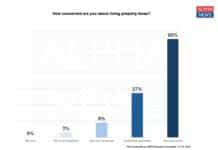Sponsored post by Principal Preservation Services and Principal Wealth Services

As the year comes to an end, there is still time to take care of some financial concerns as we look to the future.
It’s important to know where you are in your tax brackets and also important to be consistently contributing to your retirement accounts. Your employer-sponsored plan
contributions, like 401Ks, only count in the year you contribute. But when it comes to
Traditional and Roth IRAs, you have up to April 15 of the next year to contribute. It’s
important to start somewhere. So, at a minimum, you should be contributing enough
to get the employer match, but each year you should increase those contributions as
your pay increases.
Take your RMDs (Required Minimum Distribution), if you’re 73 or older. There is a minimum distribution that is just a little under 4% when you are 73, but it increases as you get older. If you have a $1 million IRA, you would have a $40,000 minimum distribution. If you miss the distribution in that year, the IRS penalizes you 25%.
You might be holding onto some bad losses over the years in your investments. The problem is that you can only carry over $3,000 of losses per year. Here’s an opportunity to sell some of your winners this year and offset those gains with any losses of a current or past carry-over loss.
There are many purchases or events that will give you a tax credit for this year, such as electric vehicles, new $7,500 or used $4,000. These credits come off of your taxes — they are not deductions. There are others with clean energy like solar panels or rebates with windows, insulation, and heating/cooling mechanicals that qualify if they are high efficiency.
Finally, check your tax bracket to see if a Roth conversion is in the cards. It’s important to know what tax bracket you are in today and where you will be in the future. Some people will be in a higher tax bracket when they are on Social Security and taking out their RMDs from their IRAs. If your tax bracket is too high, you will have a couple of problems: 1) Minnesota will tax your Social Security 2) you will pay more for your Medicare part B and D. By proper planning, many can avoid this “means-tested” tax on your healthcare by doing scheduled Roth conversions before and/or in retirement.











